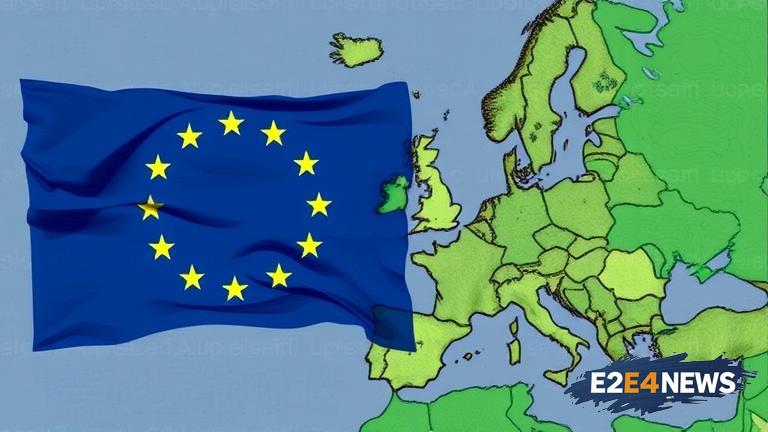The recent collapse of a proposed merger between two Italian banks, UniCredit and Banco BPM, has sent shockwaves through the European banking sector. The deal, which was intended to create one of the largest banks in the EU, fell apart due to disagreements over the valuation of the banks’ assets. The failure of the merger has exposed deep-seated issues within the EU’s banking system, including a lack of transparency and inconsistent regulation. The incident has also raised questions about the ability of European banks to withstand economic shocks and the effectiveness of the EU’s banking union. The merger was seen as a key test of the EU’s ability to facilitate cross-border banking consolidation, and its failure has dealt a blow to the bloc’s efforts to create a more integrated financial system. The collapse of the deal has also sparked concerns about the stability of the Italian banking sector, which has been plagued by bad loans and poor governance. UniCredit, one of the banks involved in the merger, has been struggling to recover from a series of costly acquisitions and a decline in its core banking business. The bank’s shares have fallen sharply since the merger was announced, and investors are increasingly concerned about its ability to turn itself around. Banco BPM, the other bank involved in the merger, has also faced significant challenges in recent years, including a major increase in bad loans and a decline in its profitability. The failure of the merger has also highlighted the difficulties faced by European banks in navigating the complex and often contradictory regulatory landscape of the EU. The EU’s banking union, which was established in the aftermath of the financial crisis, was intended to create a more integrated and stable financial system. However, the union has been criticized for its lack of transparency and inconsistent regulation, which has created uncertainty and confusion for banks and investors. The collapse of the merger has also sparked concerns about the ability of the EU to respond effectively to future financial crises. The EU’s banking sector is still reeling from the aftermath of the financial crisis, and the failure of the merger has raised questions about the sector’s ability to withstand future shocks. The incident has also highlighted the need for greater transparency and consistency in the EU’s regulatory framework, as well as the need for more effective supervision and oversight of the banking sector. In addition, the failure of the merger has sparked concerns about the impact on the Italian economy, which is still struggling to recover from the financial crisis. The Italian government has been working to strengthen the country’s banking sector, but the failure of the merger has dealt a blow to these efforts. The incident has also raised questions about the ability of the EU to support its member states in times of economic crisis. The EU has a number of tools and mechanisms in place to support its member states, including the European Stability Mechanism and the European Investment Bank. However, the failure of the merger has highlighted the need for more effective and coordinated support for the banking sector. The collapse of the merger has also sparked concerns about the impact on the global economy, which is still recovering from the financial crisis. The EU is a major player in the global economy, and the failure of the merger has raised questions about the stability of the global financial system. In conclusion, the failed Italian bank merger has exposed significant weaknesses in the EU’s banking sector, including a lack of transparency and inconsistent regulation. The incident has sparked concerns about the stability of the financial system and the ability of European banks to withstand economic shocks. The EU must take action to address these concerns and create a more stable and integrated financial system. This includes improving transparency and consistency in regulation, as well as providing more effective supervision and oversight of the banking sector. The EU must also work to support its member states in times of economic crisis and provide more coordinated support for the banking sector. Only by taking these steps can the EU create a more stable and prosperous financial system, and avoid the risks of future financial crises.
